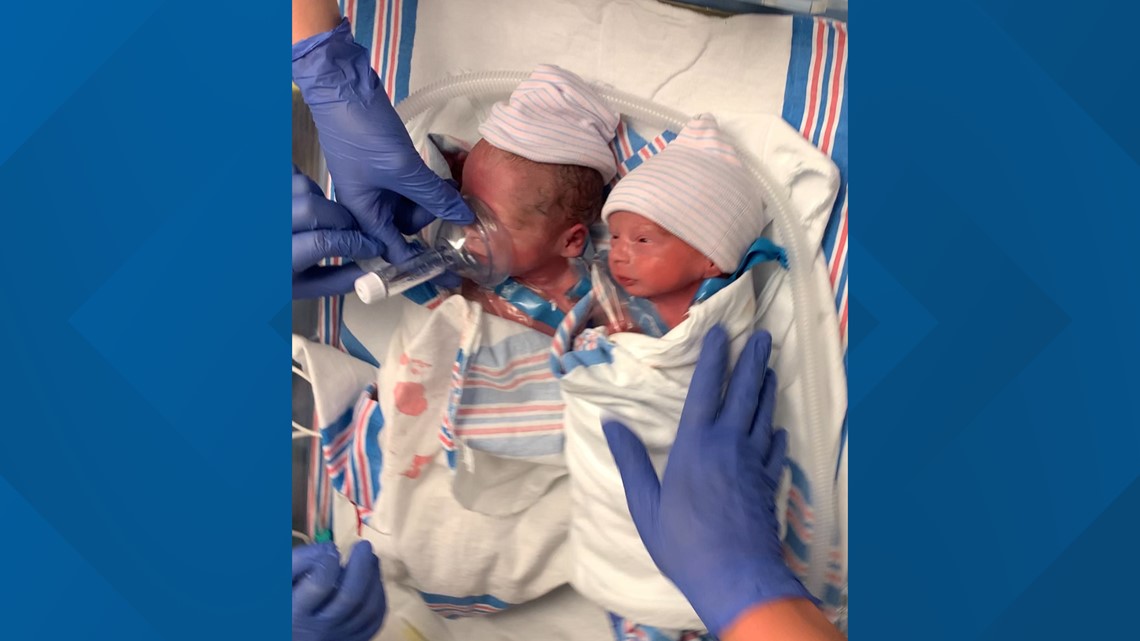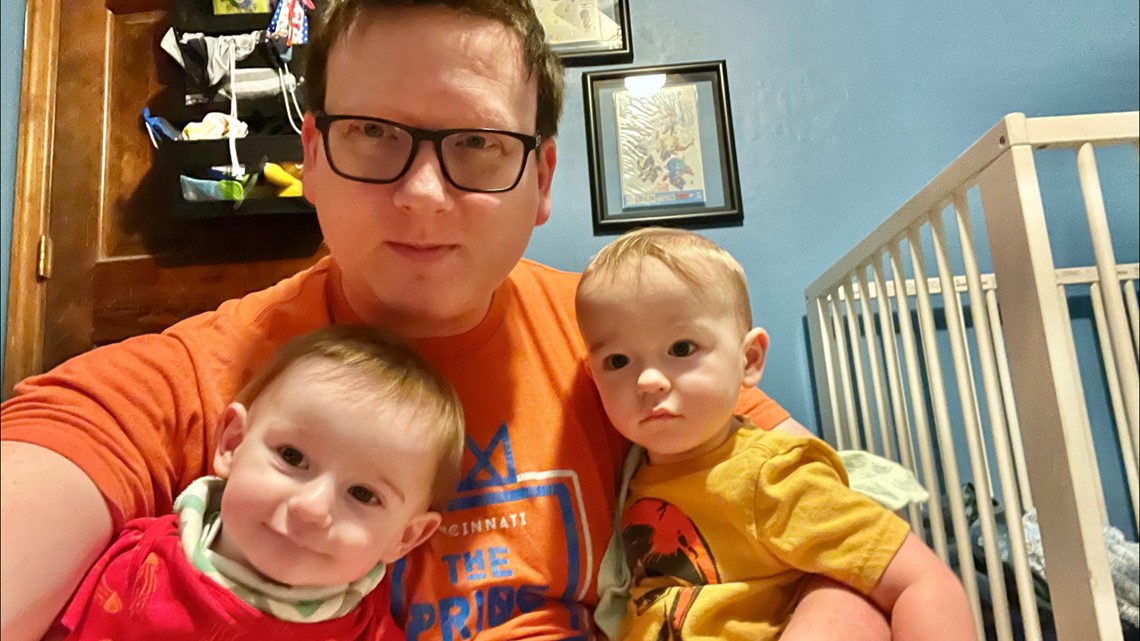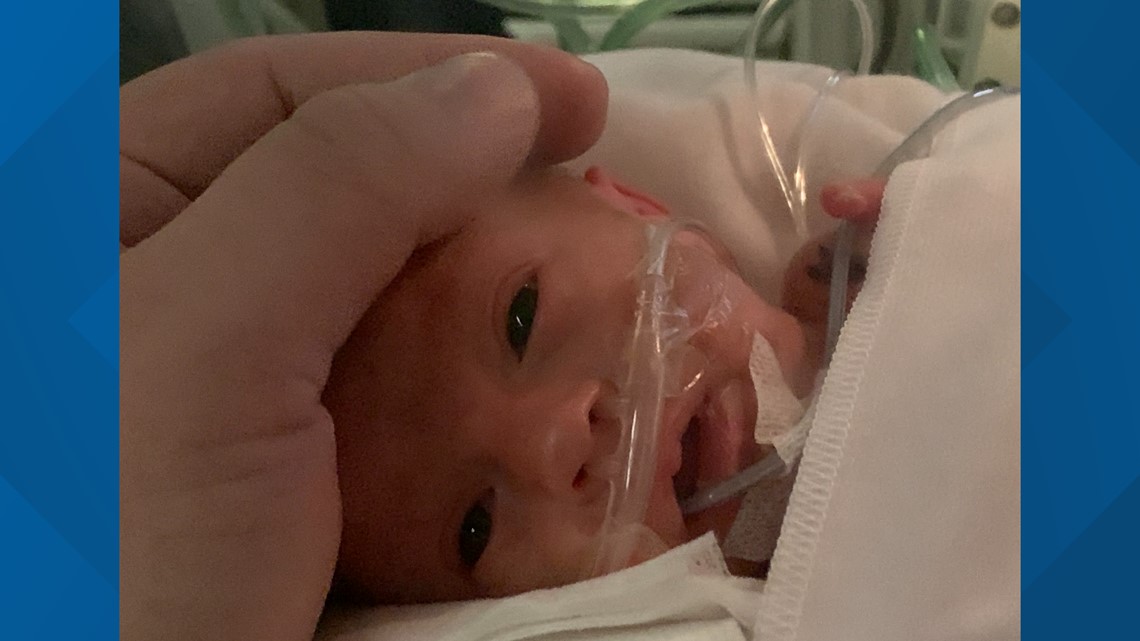Oliver Nicholson suffered from a rare syndrome that kept him in and out of the hospital for his 18-month-long life. During that time, sloths gave him comfort.
Over 45,0000 people are asking the Cincinnati Zoo to name a soon-to-be-born sloth in memory of Oliver Nicholson and to raise awareness about the rare syndrome that ultimately led to his death.
The twins are here
Since the moment he was born, Oliver Nicholson was not only a miracle but a fighter.
“Both of his vocal cords were paralyzed,” said Oliver’s mother, Alyssa Nicholson.
She said it wasn’t clear whether the paralysis was caused by having massive surgeries at only a few months old or if he was born that way.
“I had doctors tell me he’d never talk, others tell me he would only be able to whisper, and some who said no one should have told me any of that,” said Alyssa.

For about 10 months, “he would cry, and nothing would come out. It was the most horrible thing you could see. You think watching a child cry is horrible. But to see a child cry and nothing comes out is…,” she said pausing, "it’s not pleasant,” she said shaking her head as if remembering.
But during his 18 months on this Earth, Oliver did talk. And the three words he chose to share with this world were ‘Mama,’ ‘Dadda,’ and ‘Hi.’ Three words that sum up the bubbly, always-smiling toddler, who — within his tiny preemie frame — carried the might of giants.
“It was amazing to hear him say ‘Mama,’" said Alyssa. “It made me so overjoyed to hear him say it. I was so proud."
Oliver is synonymous with fighter. He fought to see this world.
“I was exactly 33 weeks, and my water broke,” said Alyssa.
“It was an emergency C-section,” said her husband, Alex. “They had done an ultrasound and Oliver wasn’t moving. He hadn’t moved in 30 minutes.”
“They had kinda warned me on the side [away from Alyssa] that Oliver might not be alive,” said Alex.
But like a true Nicholson, Oliver, although 19% smaller than his twin, fought through.
“I remember the doctors, they said, ‘Oh look at you, you just want to see your new world, don’t you,’” said Alyssa. That was the first time the mother said she began crying with joy that both of her baby boys were here.

Atticus, although a preemie, was healthy. He spent two months in the NICU under a blue light and was discharged and cleared to go home.
Oliver was born with one kidney, heart issues and his esophagus was not connected to his stomach. At three months old, he underwent his first of three major surgeries, some lasting as long as 12 hours. He spent the first five months of his life in the NICU at Cincinnati Children’s Hospital.

Alyssa said her husband was "in shock" when Oliver was born.
“He said, ‘He doesn’t have arms.' And I said, ‘It’s fine. He’s alive. It’s fine,’” said Alyssa, smiling.
Bonding
Some mothers feel an initial bond with their children, others take some time. For Alyssa, it was instant.
“I felt an instant bond with both of them,” said Alyssa. “I was never scared. I have fear now with my new pregnancy because of losing Oliver, because you now live in this world of reality where things don’t always go the way you want them to."
Alex said he formed a very strong bond with Oliver. He said the Children’s Hospital was right near his work so while Alyssa was taking care of Atticus at home and working, Alex was able to make more visits to the hospital.
Alyssa described that time as “very difficult” and said she got her strength from the twins.
“Oliver and I were very close,” said Alex. “But I will admit not at first. It all kinda scared me at first. It was overwhelming. I didn’t know how to process it all to a degree."
“When he was in the NICU, they encouraged us to hold him for skin-to-skin contact, and for the first week or so, I was hesitant but after that, I formed a very strong bond with him,” Alex added.

